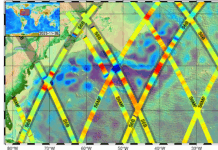Understanding the IAEA’s Commitment to Nuclear and Radiation Safety
The International Atomic Energy Agency (IAEA) has long been at the forefront of promoting nuclear and radiation safety across the globe. At the core of this mission are the IAEA safety standards, a set of guidelines that reflect a global consensus on the necessary measures for ensuring high safety levels in nuclear operations. These standards are crucial in protecting both people and the environment from the harmful effects of ionizing radiation. Lydie Evrard, the IAEA Deputy Director General and Head of the Department of Nuclear Safety and Security, emphasized the importance of these standards, stating that they are pivotal to the agency’s mission of safeguarding public and environmental health.
In a bid to enhance understanding and application of these safety standards, the IAEA has launched a comprehensive e-learning series. This initiative is tailored for operators, regulators, and other stakeholders who utilize IAEA safety standards. The course is available at no cost and comprises 13 modules, each designed to provide users with the flexibility to either focus on specific topics or complete the entire series for a holistic understanding of safety standards.
Overview of the E-Learning Series
The e-learning series serves as a valuable resource for understanding the interconnectedness of the IAEA safety standards, which encompass all nuclear and radiation applications intended for peaceful purposes. Dominique Delattre, the Head of the IAEA Safety Standards and Security Development Section, highlighted the challenge of enabling countries to fully exploit these standards. He noted that the e-learning series acts as a bridge, offering insights into the importance of these safety measures and their effective application.
The introductory module of the series is accessible in all six official languages of the IAEA. This module provides a comprehensive overview of the safety standards, detailing their structure, development process, primary objectives, and how the safety fundamentals, requirements, and guides are integrated to form a robust framework for nuclear safety.
Breaking Down Technical Jargon
For those unfamiliar with nuclear safety terminology, the IAEA safety standards may seem complex. However, the e-learning series breaks down these concepts into easily digestible information. The safety fundamentals refer to the basic principles that form the foundation of all safety measures. Safety requirements are the conditions that must be met to protect people and the environment from radiation risks. Safety guides provide recommendations and guidance on how to achieve the safety requirements.
The Global Importance of Nuclear Safety Standards
Nuclear safety standards are not just a set of guidelines; they represent a collective international effort to ensure that nuclear technology is used safely and responsibly. The IAEA’s commitment to these standards underscores the agency’s dedication to preventing nuclear accidents and minimizing the risks associated with nuclear activities. By adhering to these standards, countries can ensure that their nuclear operations do not pose a threat to public health or the environment.
Moreover, the e-learning series is a significant step towards promoting global nuclear safety. By making this resource freely available, the IAEA is encouraging widespread adoption and understanding of its safety standards. This initiative not only benefits operators and regulators but also contributes to a safer world by fostering a culture of safety in nuclear operations.
Additional Insights and Reactions
The launch of this e-learning series has been met with positive reactions from the international community. Experts and stakeholders in the nuclear field have praised the IAEA for its proactive approach in promoting safety and transparency. The series is seen as a valuable tool for both seasoned professionals and newcomers to the nuclear industry, providing them with the knowledge needed to uphold safety standards in their respective fields.
Furthermore, the series aligns with the IAEA’s broader goals of promoting peaceful uses of nuclear technology. By ensuring that safety standards are understood and implemented, the agency is paving the way for the responsible use of nuclear technology in energy production, medical applications, and scientific research.
Conclusion
In conclusion, the IAEA’s e-learning series on nuclear and radiation safety standards marks a significant advancement in promoting global safety measures. By providing this resource, the IAEA is reinforcing its commitment to protecting people and the environment from the potential hazards of ionizing radiation. The series is not only a testament to the agency’s dedication but also a valuable tool for anyone involved in nuclear operations. As more countries adopt and implement these safety standards, the world moves closer to achieving a safer and more secure nuclear future.
For more information on the IAEA safety standards and to access the e-learning series, you can visit the IAEA’s official website.
For more Information, Refer to this article.


































